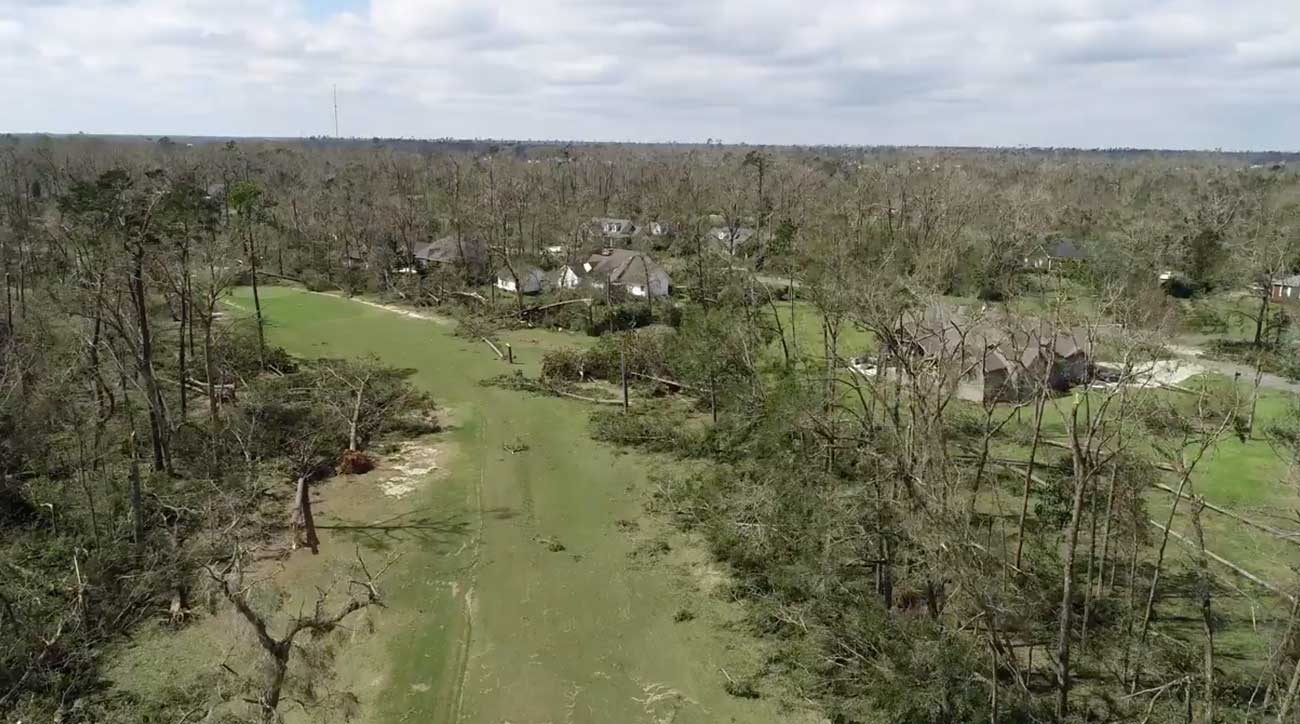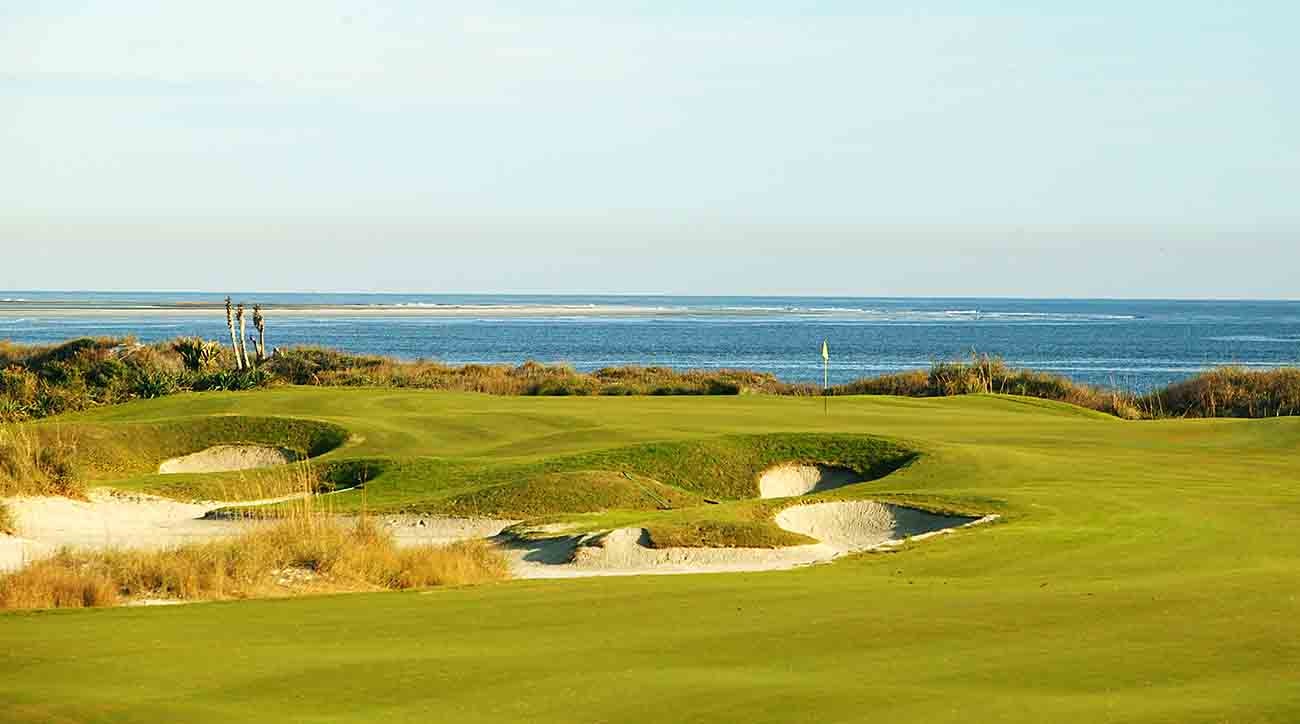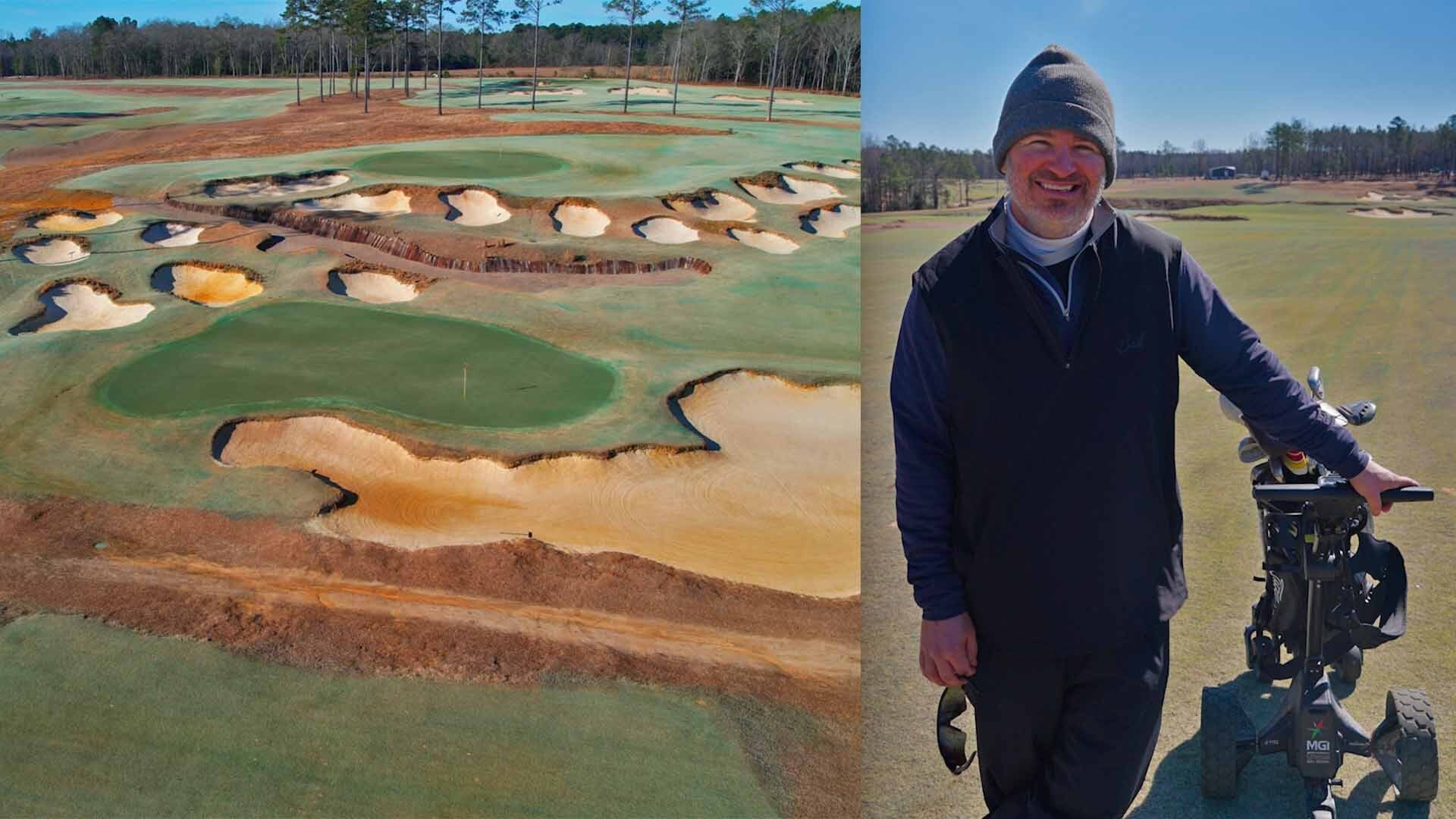The father and son went into the golf-course business together 22 years ago. The father, Rod Beebe, moved from a tiny nook of South Florida, with its shiny malls and valet-parking restaurants, to a Deep South town called Marianna, in the heart of the Florida Panhandle, where the farmers grow cotton and watermelons. The son, Kyle Beebe, had taken an even longer route to Marianna, in Jackson County, near the Florida-Alabama border. He had been living in Japan, where he had spent three years working as a design coordinator on Jack Nicklaus courses. He learned Japanese to understand what his charges were saying about him. “Not much use for Japanese here,” Kyle told me the other day, as we stood in a spitting Marianna rain. The eye of the storm came right through Marianna. You remember Hurricane Michael, don’t you?
Marianna has three prisons, at least 20 churches and one golf course, a full-length, no-frills public track called Indian Springs. Rod and Kyle Beebe have been its owner-operators since 1996, and their wives help run things, too. Father and son are excellent golfers, scratch at their best. Kyle has a degree in agronomy from UMass and can operate any bulldozer you put in front of him. Rod is a self-educated engineer. He started his own aerospace tools shop, sold it, got bored in retirement and bought Indian Springs.
They’re a funny pair. Kyle, 47, is XXL in every way and voluble, except when it comes to numbers. There — size of greens, rounds per year, that sort of thing — he’s a model of precision. Rod, 77, a trim cigar-smoker, is more apt to offer some swollen guesstimate about this or that. But it was Kyle who was eager to build spec houses on the course. Rod was not. Kyle deferred. Then came 2008. Father knew best.
RELATED: Some Florida golf courses got lucky after Hurricane Irma. Others didn’t
Indian Springs golfers will tell Kyle things like, “He’d probably never say nothing to you, boy, but your daddy’s bragging on you all the time.” That sentence surely captures something about the father-son relationship and opens a window on their course, too. Indian Springs, like the whole of Jackson County, isn’t sparkly. It’s simple, affordable and needed American golf. Kids 12 and under with an adult play free. The driving range is a 20-acre field. The reigning Indian Springs club champion, Sammy Basford, is a probation officer.
As the hurricane approached, Rod and Kyle decided to stay in their respective homes, as did Sammy Basford and many other Marianna families, not thinking it would be so bad, 65 miles from the Gulf of Mexico. The sounds alone, carried in 140-mile-an-hour wind bursts, were terrifying. “It was like a locomotive running right through your house,” Basford told me. Kyle and his wife, Charlene, held a large sheet of plywood across a living room window as their house was suddenly in a violent car wash. For most of the next 10 days or so, throughout Marianna, there was no running water, no electricity, limited cell-phone service. The depressing hum of helicopters and chainsaws filled the air from sunrise to sunset. Kyle did his bathing in a fresh-water pond.
He estimates the storm downed at least 5,000 trees on the course; Rod puts the number at more than double that. Either way, at $100 a tree for removal, the starting point to reopening is a daunting expense, maybe a year’s worth of revenues. All day long, tree men in flatbed trucks ride up to the pro shop, frozen in time since the storm, and offer their services, like kids with shovels going door-to-door after a snowstorm. Insurance covers their damaged buildings but doesn’t cover downed trees. “Well, ’bout all you can do is say a prayer,” one of the tree men said the other day after being turned away.
Kyle’s been cutting the greens. It’s something he needs to do. Nobody is going to be putting on them anytime soon, but his greens are beautiful. Like many others in Jackson County, Kyle is a farmer. His crop is grass, common Bermuda. He grows two-inch rough, half-inch fairways, eighth-inch greens. His course has vistas now that it never did before.
For the father and son, working together has been a steady toil with some head-butting, of course, but also moments of quiet pleasure, as when father and son reopened the fourth hole. Their hole. Better than the one they had inherited.
Rod has been looking at the books, wondering what the future might hold for Indian Springs. Kyle sits atop a rented front-end loader every day, clearing out pines and oaks by the score. There are days when he feels he’s hardly making a dent.
Near the course, and around Marianna, there are recently planted homemade signs for a business called God Winks Stump Grinding. “You soul-search when you’re by yourself,” Kyle said. His truck was stopped on a fairway and his shoes were caked in red dirt. “One day, I was on the loader, looking at all those downed trees, wondering if we’ll ever reopen, and I just threw up.”
Michael Bamberger may be reached at michael_bamberger@golf.com.







